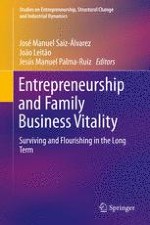In order to respond to economic globalization and increased competitive pressures, companies need innovative, efficient and effective management strategies. Accordingly, this book explores various scenarios faced by entrepreneurs and family businesses, and proposes strategies to tackle the challenges and seize opportunities to grow in a highly competitive environment. It underscores the importance of deploying vital strategies to survive and flourish in the long term, overcoming challenges, and capitalizing on opportunities in order to attain / maintain a competitive position. By presenting and integrating the latest insights and case studies on entrepreneurship, family businesses, and strategy research, the book provides concrete recommendations for effective business survival and growth.
